SUMMARY
This is AI generated summarization, which may have errors. For context, always refer to the full article.
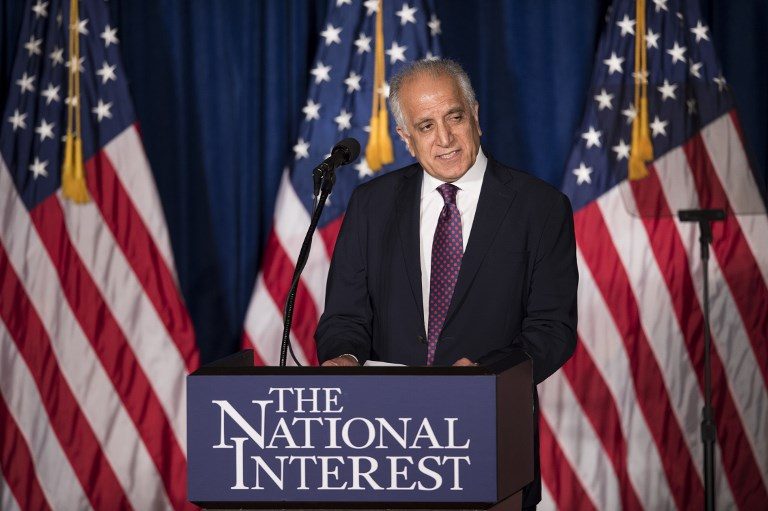
The United States has said its landmark deal with the Taliban has entered the “next phase” while urging the militants to reduce rising violence to allow Afghan peace talks to begin.
The two sides signed an agreement in February that saw Washington pledge to withdraw all troops from Afghanistan by the middle of next year, in return for the insurgents promising to hold negotiations with the Afghan government to end the decades-old war.
Under phase one, the US said it would reduce troops to 8,600 within 135 days, while completely removing forces from 5 military bases.
On the 135th day, US Special Representative on Afghanistan, Zalmay Khalilzad, who negotiated the deal for Washington, tweeted that both sides had reached a “key milestone.”
“The US has worked hard to carry out 1st phase of its commitments under the agreement, including to reduce troops & depart 5 bases,” he said Monday, July 13.
As the deal entered its “next phase,” Washington’s approach will be based on certain conditions, Khalilzad warned.
“We will press for completion of prisoner releases, reduction of violence… [and] start of [and] progress in intra-Afghan negotiations,” he said.
The Taliban on Tuesday, July 14, welcomed the cut in US forces, but claimed that American troops had frequently carried out bombings in non-combat zones and “offensives” in support of the Kabul government in several provinces.
It also accused US pilots of carrying out airstrikes against civilians, mujahideen and public infrastructure in the past 10 days.
“These all are blatant violations of the agreement and deliberate attempt at provoking the mujahideen towards large-scale attacks,” the Taliban said.
‘Violence has been high’
The deal was signed after a lull in violence, but the Taliban have since stepped up attacks across much of Afghanistan killing hundreds, officials say.
Khalilzad condemned the attacks, saying “large numbers” of Afghans continued to die without a reason, while acknowledging that no American had been killed since the deal.
“Violence has been high, especially in recent days and weeks,” Khalilzad said, condemning a Taliban attack on Monday on a rural office of Afghanistan’s intelligence agency that killed 11 security personnel.
“The Taliban’s attack… contradicts their commitment to reduce violence until a permanent ceasefire is reached in intra-Afghan talks.”
US President Donald Trump, who is running for reelection in November, has said repeatedly that he wants to end America’s longest war as soon as possible.
Talks between the Taliban and Kabul hinge on a nearly-completed prisoner exchange agreed in the deal.
The government has so far released more than 4,000 Taliban inmates, while the insurgents have freed more than 600 Afghan security personnel.
Afghanistan’s Independent Human Rights Commission, meanwhile, said in a report on Tuesday that in the first 6 months of this year, a total of 1,213 civilians were killed and another 1,744 wounded in 880 incidents across the country.
It said the figures showed a drop of 11% as compared to the first half of 2019.
The Taliban accounted for 48.5% of civilian casualties, while 15.5% were attributed to government forces, and 6.3% to the extremist Islamic State group. – Rappler.com
Add a comment
How does this make you feel?
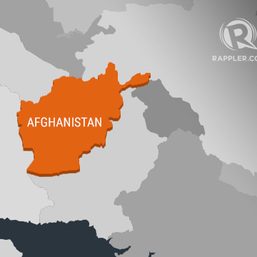
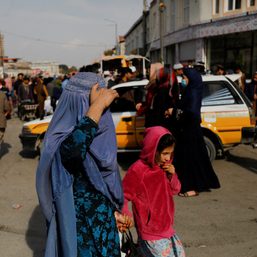

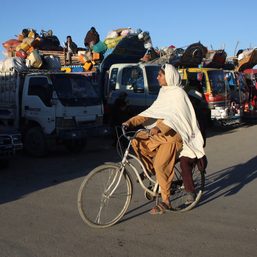
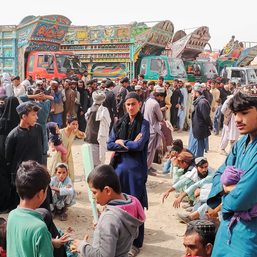
There are no comments yet. Add your comment to start the conversation.